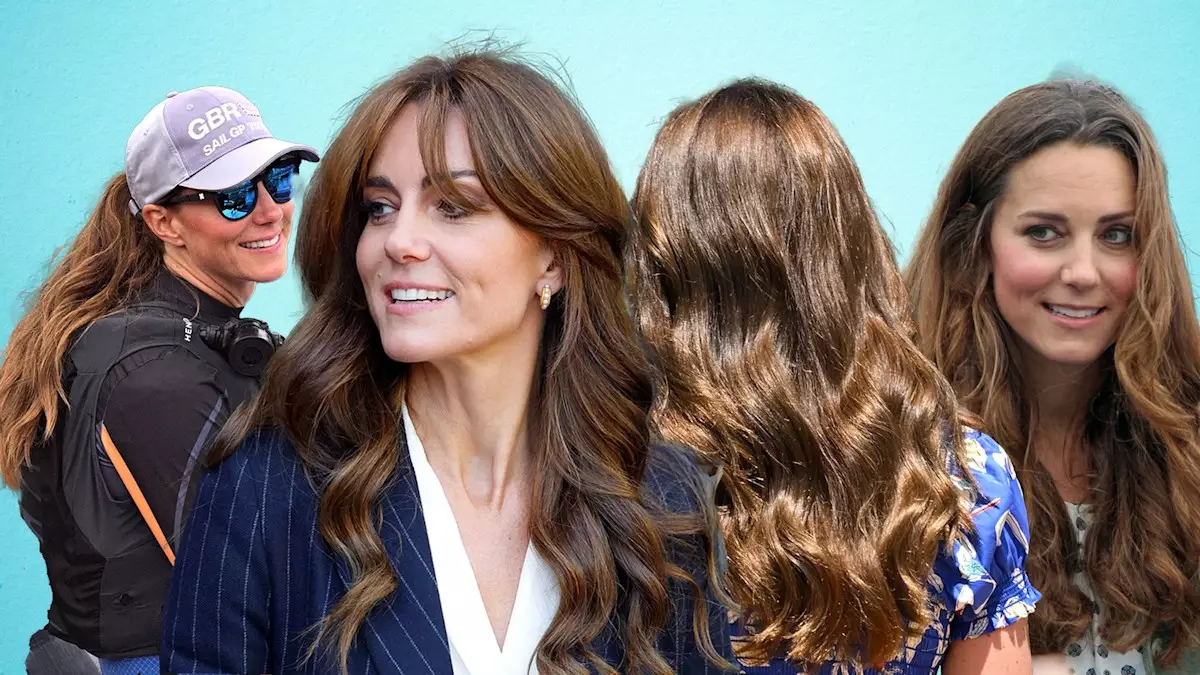When discussing royal beauty, the Princess of Wales stands as an emblem of elegance, particularly when it comes to her enviable hair. Known for its boundless gloss and volume, her hairstyle consistently captivates both the public and fashion experts alike. The debate surrounding the authenticity of her luxurious tresses—specifically whether they are enhanced with hair extensions—remains highly polarizing. While some industry insiders assert that the Princess relies solely on her natural hair, others suggest that techniques such as tape-ins or keratin bond extensions may very well contribute to her striking look.
In the ongoing discourse, celebrity hairstylist Chris Appleton—who has worked with notable figures like Kim Kardashian—insists that the Princess of Wales possesses naturally magnificent hair. His observations are grounded in the texture and appearance of her strands, which he argues show no signs of artificial enhancement. Conversely, extension specialist Olia Cutz challenges this viewpoint, positing that subtle hair extensions could effortlessly augment length and volume without drawing attention. Her insights highlight the ability modern hair technology has to create a seamless appearance that keeps even the most discerning eyes guessing.
Nutrition: The Root of Gorgeous Hair
While expert opinions on extensions are compelling, the underlying health of hair cannot be divorced from nutrition. Registered Nutritional Therapist Lucia Stansbie emphasizes that what we consume profoundly impacts the vitality of our locks. A nutrient-rich diet serves as the foundation for maintaining healthy, abundant hair. Stansbie advocates for specific nutrient pairings, such as vitamin C, known for stimulating collagen production—an essential component for robust hair structure.
Key foods for achieving that coveted sheen are often simple and accessible, including fresh fruits and vegetables that offer a range of vitamins and antioxidants vital for hair health. However, while diet is essential, it doesn’t operate in a vacuum.
Nutritional intake can only go so far; hormonal balance plays a pivotal role in determining hair quality and quantity. Imbalances can lead to significant issues, including thinning or loss of hair, as discussed by Stansbie. She identifies common contributors to hormonal irregularities, including Polycystic Ovary Syndrome (PCOS), endometriosis, and postpartum shifts, all of which can disturb the status quo and prompt hair challenges.
For individuals navigating menopause, the hormonal changes that accompany this life stage can also lead to thinning hair. However, Stansbie insists that incorporating foods rich in protein and healthy fats can help alleviate some of these issues, providing nutrients that support hair strength and brilliance.
Ultimately, the allure of the Princess of Wales’ hair extends beyond mere visual appeal; it symbolizes a broader dialogue that encompasses professional insights on beauty, nutrition, and health. While debates over extensions may persist, true hair vitality fundamentally lies in the realms of diet and hormonal balance. Pursuing a health-conscious lifestyle, rich in vital nutrients, appears essential for anyone aspiring to attain those coveted, royal-worthy locks.

